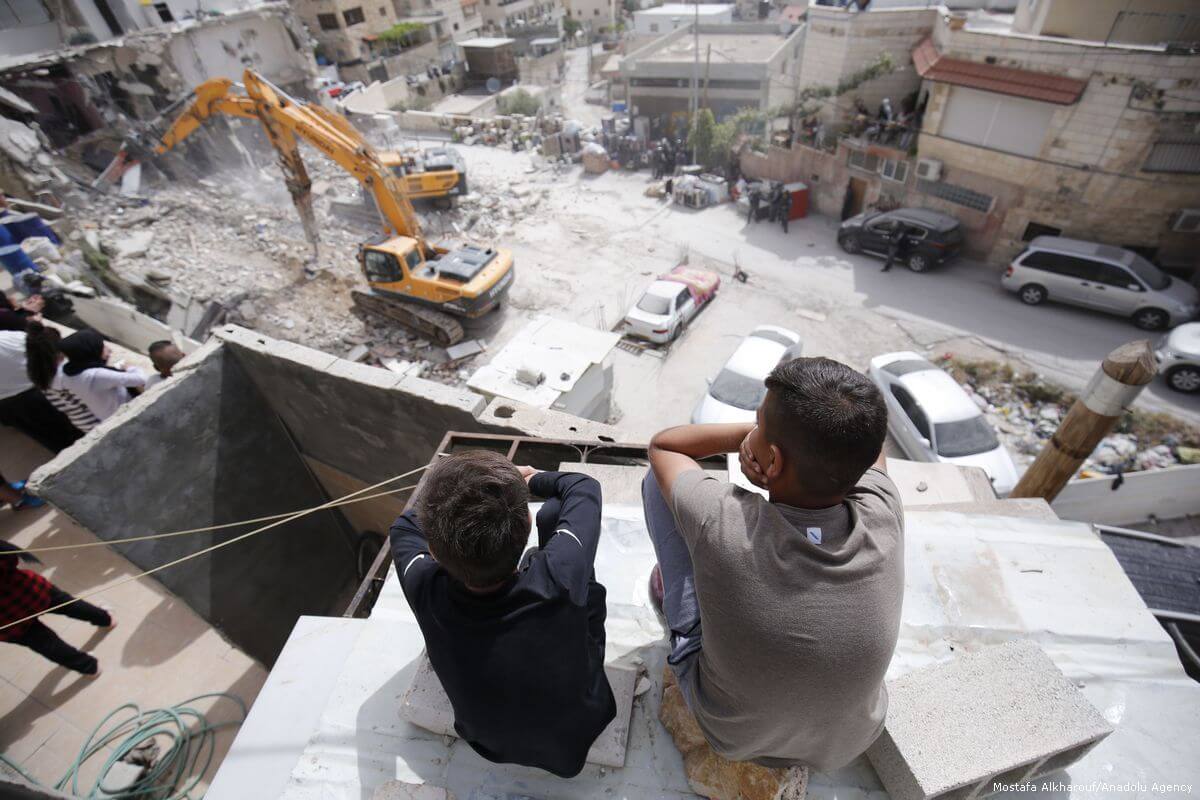Israel’s demolitions of Palestinian properties in the West Bank and East Jerusalem have surpassed previous records, with almost 741 Palestinians losing their homes between January and September.
According to the Israeli Committee Against House Demolitions (ICAHD), more than 100,000 Palestinian houses have been demolished in Israel and the Occupied Palestinian Territories since 1948. In 2019, 623 structures were destroyed, displacing at least 914 people in the Palestinian territories alone. Also, 655 residential structures were demolished in “unrecognized villages” in the Negev desert. However, this year, within just nine months, the losses have already been significantly higher.
In fact, Israel has been engaging in property demolition since the six-day war, famously known as the Arab- Israeli War of 1967. The practice has been categorized into ‘punitive demolitions’, ‘administrative demolitions’, ‘land-clearing operations’, and ‘undefined demolitions’. Israeli Defence Forces (IDF) justifies them as an act of counter-terrorism and labels them as ‘precautionary demolitions’. This policy was initially adopted during the years of the Second Intifada to counter force a wave of suicide bombings that killed thousands of citizens. In 2005, due to increasing violence, the policy was abruptly put to an end. However, in the last couple of years, the demolition policy has been re-adopted.
When it comes to East Jerusalem and West Bank, the Israeli authorities have either forced Palestinian residents to demolish their properties or have done it themselves. The reason that Israeli authorities successfully impose the demolition policy is due to the illegal construction of the houses. Due to high property rates and an expensive bureaucratic process, many Palestinians end up building their own houses. Israeli authorities perceive these homes as illegal settlements and thus characterise them as illegal; in doing so, they bestow upon themselves the right to demolish them.
However, the United Nations (UN) has criticized and accused the Israeli government of violating Article 33 of the Geneva Convention of 1949, under which ‘no protected person may be punished for an offence he or she has not personably committed. Collective penalties and likewise, all measures of intimidation or terrorism are prohibited’. Amnesty International has also accused the Israeli government of the theft of Palestinian land through annexation to build the Israeli West Bank barrier.
There appeared to be some hope for the Palestinians after Israel signed a deal with UAE and Bahrain, establishing formal diplomatic ties with each of the nations. On September 15, 2020, the Abraham Accords Declaration was signed at the White House in Washington DC to recognise each state’s sovereignty, to exchange ambassadors, and conclude bilateral agreements. After Egypt in 1979 and Jordan in 1994, the deal makes the UAE and Bahrain the third and fourth Arab states to normalise their ties with Israel. Initially, when the deal was signed, Israel agreed to suspend plans for annexing parts of the West Bank; however, as expected, they reneged on this commitment. It can be argued that Arab states were fully aware that Israel would do so and thus one can question whether they are truly committed to Palestine’s cause in the first place.
Palestinian authorities were critical of the normalisation deals when they were signed and were reluctant to believe that there would be any change in Israel’s annexation policy. At the time, Palestinian President Mahmoud Abbas denounced the agreement by stating that the agreement hampered the collective Arab ‘Axis of Resistance’ against the Israeli occupation. The Palestinians want the West Bank as part of the future independent Palestinian state, with East Jerusalem al-Quds as its capital. Given that Israeli annexation has now resumed and reached record levels, these misgivings have now proven to be well placed.
By forcing thousands of Palestinians to vacate their homes, the Israeli demolitions have created a severe housing shortage. In light of the current COVID pandemic, the demolitions have left many Palestinians susceptible to health risks, alongside the daily existential threats of poverty, hunger, and homelessness.
Israel Records Four-Year High in Demolition in West Bank and East Jerusalem
Since January, more than 700 Palestinians have lost homes due to Israeli demolitions in the West Bank and East Jerusalem.
November 4, 2020

SOURCE: Middle East Monitor
